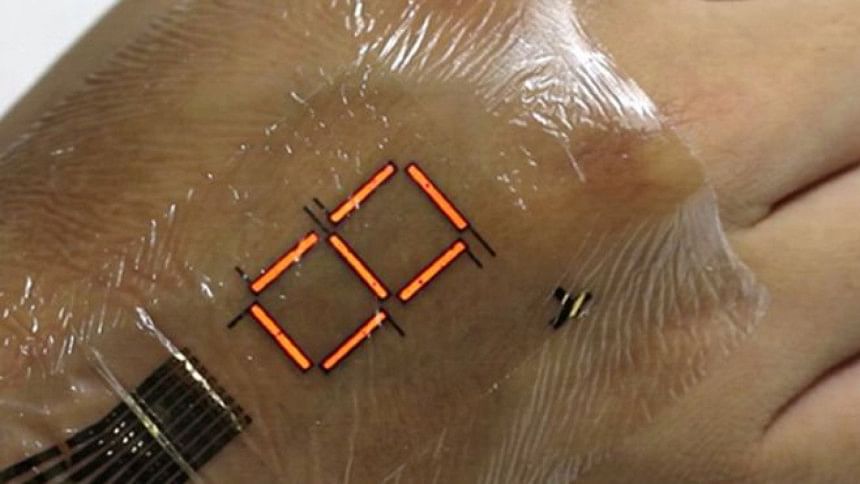E-skin 'can monitor body's oxygen level'

Scientists say they have developed ultra-thin electronic "skin" that can measure oxygen levels when stuck to the body.
The goal is to develop such "skin" to monitor oxygen levels in organs during surgery, say researchers in Japan.
Tests on volunteers found the "skin" provided stable measurements of oxygen concentration in blood.
The device contains micro-electronic components that light up in red, blue and green on the surface of the body.
Scientists at the University of Tokyo are working on ways to display numbers and letters on the skin for health monitoring purposes.
Wearable electronics are a future growth area in research, with interest in medical applications such as contact lenses that monitor glucose levels, or smart glasses.
The latest findings are revealed in Science Advances.
"The device unobtrusively measures the oxygen concentration of blood when laminated on a finger," said lead researcher Tomoyuki Yokota and colleagues.
He added: "Ultimately, flexible organic optical sensors may be directly laminated on organs to monitor the blood oxygen level during and after surgery."

 For all latest news, follow The Daily Star's Google News channel.
For all latest news, follow The Daily Star's Google News channel. 








Comments